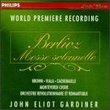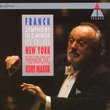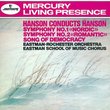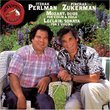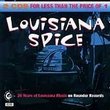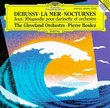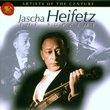| All Artists: Johannes Brahms, Jascha Horenstein, SWR Baden-Baden and Freiburg Symphony Orchestra, Südwestfunkorchester Baden-Baden Title: Brahms: Symphony No.1 / Variations on a Theme of Haydn Members Wishing: 0 Total Copies: 0 Label: Vox (Classical) Release Date: 7/11/2000 Genre: Classical Style: Symphonies Number of Discs: 1 SwapaCD Credits: 1 UPC: 047163780127 |
Search - Johannes Brahms, Jascha Horenstein, SWR Baden-Baden and Freiburg Symphony Orchestra :: Brahms: Symphony No.1 / Variations on a Theme of Haydn
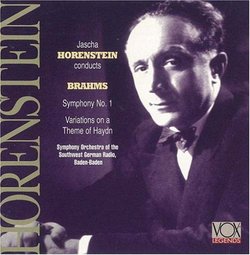 | Johannes Brahms, Jascha Horenstein, SWR Baden-Baden and Freiburg Symphony Orchestra Brahms: Symphony No.1 / Variations on a Theme of Haydn Genre: Classical
|
Larger Image |
CD DetailsSimilarly Requested CDs |
Member CD ReviewsReviewed on 2/26/2010... Excellent remaster.
CD ReviewsHorenstein Fans... Rejoice! Jack Einhorn | Philadelphia | 06/14/2000 (5 out of 5 stars) "It's been a great couple years for us Jaschaholics -- first came four stunning releases from the BBC (most notably the first authorized release of Horenstein's live Mahler Eighth from 1959, one of the very few concerts truly worthy of the label "legendary").Now, Vox has at last released some of Horenstein's most intereating work for the label. It's been far too long since the label has released Horenstein titles previously unavailable on CD.Here's a brief rundown: Brahms: Symphony No. 3 (SWF, stereo)/Wagner: Meistersinger Prelude & Tannhauser Overture (Bamberg, mono) -- It must be at least fifteen years since I've played the Brahms recording, which I recall sounding strident. The big surprise for me was the manner in which Horenstein's robust, rhythmically propulsive performance balances lyricism and cragginess -- reminiscent more in character of Brahms's chamber music than his larger-scale utterances. The beautifully-played third movement, to which Horenstein lends a melancholy atmosphere with effective rubato and phrasing which reveals some startling details, is particularly outstanding. The string sound gets a bit rough during louder passages, but the wholly involving performance overrides the sonic shortcomings. The Wagner recordings (first released on LP with other Wagner orchestral works now to be found in one a Horenstein Vox Box coupled with Richard Strauss, Schoenberg and Mahler) are quite a contrast -- especially for the more unbuttoned brass playing and effective contrapuntal balance in the Meistersinger prelude.Brahms: Symphony No. 1/Haydn Variations (SWF, stereo) -- Those of you who have become accustomed to Horenstein's highly-praised LSO Brahms First (Reader's Digest, now available in a very good CD transfer on Chesky) are in for a surprise. Horenstein's earlier recording takes a similar interpretive approach, but with some startling differences in detail and balance. The SWF outfit had a smaller string compliment than the LSO (and it sounds as if the same is true for the above Brahms 3), and Horenstein uses it to his advantage. The SWF sound is a bit less bass-heavy, and the somewhat drier acoustic lends more gravitas to the pauses, notably in the introductory section of the first movement and the finale. And while the overall playing of the LSO is more polished, there is greater tension and forcefulness in the SWF's playing -- especially in the first movement, where the "grab-you-by-the-lapels" index is much higher than that with the LSO. Horenstein adopts slightly broader tempos with the SWF, along with more emphatic rubatos and tempo shifts that come across with greater dramatic effect. The second movement is filled with the sort of cantabile playing that seems to have gons so out of fashion these days -- and that is less apparent in Horenstein's subsequent LSO effort. The third movement comes across both more gently and playfully than his latter effort, and the fourth movement comes across as even more of a "grand-scale" statement than his later effort -- only Horenstein and Furtwangler (in my not-so-humble opinion) have been able to pull off the finale with this balance of sturm und drang (and even a couple of Furtwangler's surviving airchecks come across as overwrought). The Haydn Variations may surprise some Horenstein fans and convert a few of te dissenters -- it is one of Horenstein's most playful and witty performances on disc. Shostakovich: Symphony No. 5/Janacek: Taras Bulba (Vienna "Pro Musica", mono) -- I've only given this disc a cursory listen, but it's going back on the player later, The "big tunes" did not catch my attention so much as the pathos-filled quieter passages of the Fifth. If you're looking for a Fifth with both force and poetry, this one will fill the bill -- in fact, Horenstein's vew of the quieter sections reveals the foreshadowings of the lament-filled passages of the seventh and Eighth ymphonies, a connection I had not made before. The Janacek sounded bold, astringent, and surprisingly detailed. In the BBC interview of Horenstein with Alan Blyth that has accompanied at least three commercial rleases on Unicorn and BBC, Horenstein has described Janacek as an unpolished and unpretentious craftsman, and spoke warmly of his music -- and Horenstein conveys the inimitable ruggedness of Janacek without exaggeration. Stravinsky: The Rite of Spring (SWF, mono)/Firebird (SWF, stereo) -- It's on right now. Do not expect the every-note-in-the-right-place Boulez approach to Stravinsky -- Horenstein makes it sound more balletic, but does not lose the rustic bite missing from so many "technically polished" Rites. Vox plans on releasing their remaining Horenstein holdings; according to the liner notes, these couplings are in the offing:Dvorak: Sym. 9/Janacek: SinfoniettaHaydn: Creation/Sym. 104Beethoven: Eroica (stereo '57)/Haydn: Sym. 101Beethoven: Sym. 5 & 6Beethoven: Sym. 9Prokofiev: Sym. 1 & 5/Chout Suite/ Lt. Kije SuiteMozart: RequiemI hope they don't forget his earlier Eroica while they're at it." The violins dominate a little, but the sound is fine... Alan Majeska | Bad Axe, MI, USA | 12/03/2005 (5 out of 5 stars) "I learned Brahms Symphony 1 with this recording on a Vox LP during my last years of high school (1976-77) and still have an affection for this recording. Jascha Horenstein (1899-1973) is known today for many live recordings, preserved now on CD, but this 1958 studio recording in a special Vox Horenstein edition is beautifully remastered and makes a good case for Horenstein's Brahms. The only possible deficiency I noticed was an overbalancing of the upper strings: the violins dominate a little in Symphony 1:I and IV, but the overall sound is fine, if not on the level of the best stereo analog recordings made in the 1960s and 70s.
The "Haydn Variations" are no less successful, and are very well played and recorded. Horenstein's fans should be thankful for this release, as I am. In the past 30 years, I've become more acquainted with great recordings of this symphony by Steinberg/Pittsburgh (MCA), Walter/Columbia (CBS), Szell/Cleveland (Sony), Bernstein/New York (Sony), Karajan/Berlin (DG, 1978), and Bohm/Vienna (DG, 1975). All of those orchestras are better than the Southwest German Radio Orchestra was in Horenstein's 1958 recording, but if you are a Horenstein fan or just want a good, solid Brahms 1, this will not disappoint. " |

 Track Listings (14) - Disc #1
Track Listings (14) - Disc #1